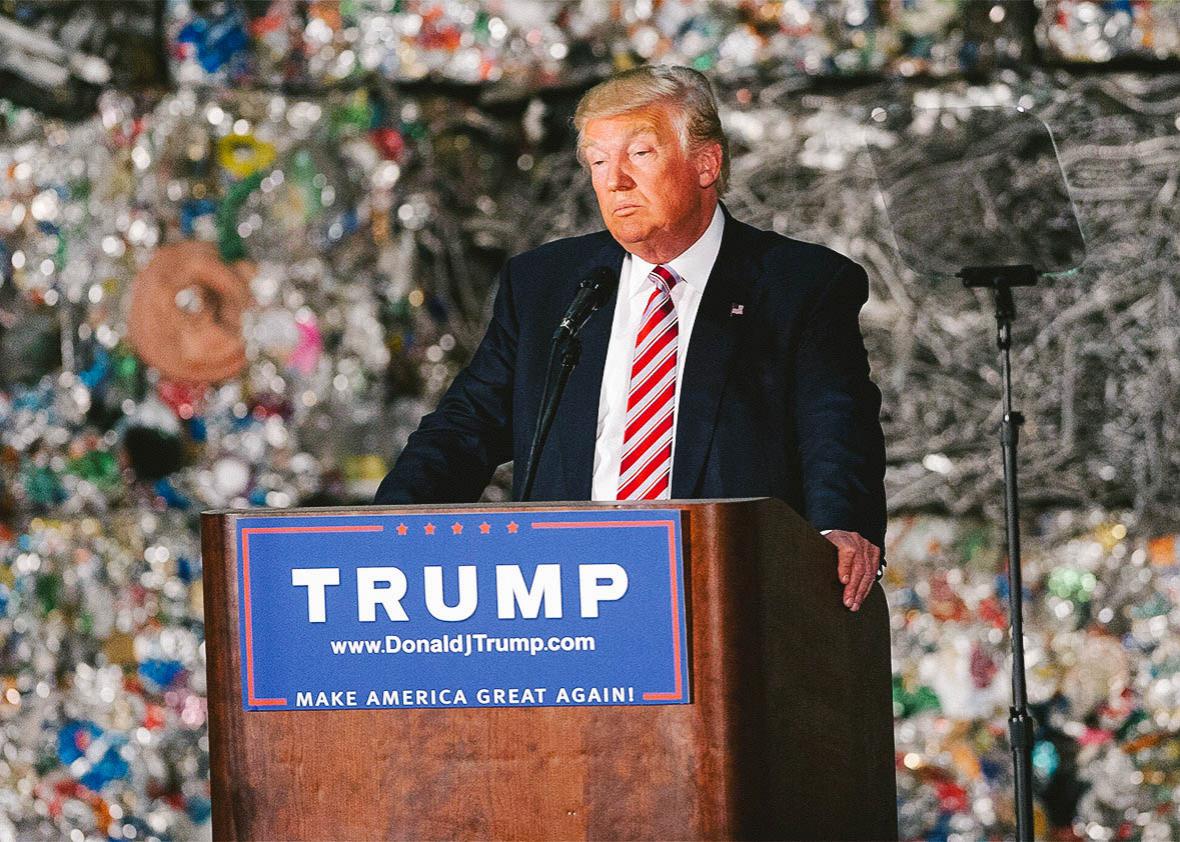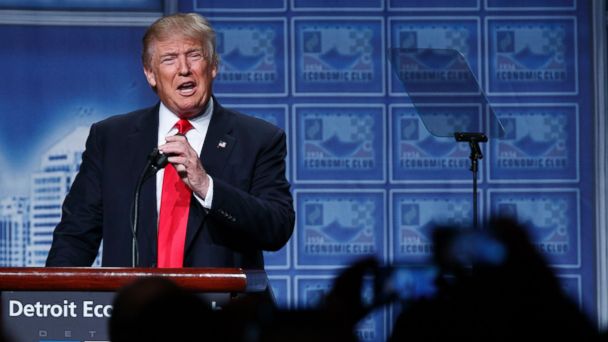The Price Of Trump's Economic Nationalism

Table of Contents
Donald Trump's presidency was characterized by a significant shift towards economic nationalism, prioritizing American interests through protectionist policies. While proponents argued these measures would boost domestic industries and jobs, critics warned of potential economic downsides. This article examines the price paid – and continues to be paid – for Trump's economic nationalism, analyzing its impact on various sectors and the broader global economy. We will delve into the increased trade tensions, harm to specific industries, and the long-term economic consequences stemming from this protectionist approach.
Increased Trade Tensions and Retaliation
Trump's economic nationalism manifested most visibly in his administration's aggressive use of tariffs and its withdrawal from key international trade agreements. This strategy, while aiming for a more "America First" approach, significantly escalated global trade tensions and ultimately proved costly.
The Impact of Tariffs
Trump's administration implemented significant tariffs on goods from China, Mexico, and other countries, aiming to protect American industries and jobs. However, these actions had several unintended negative consequences:
- Increased prices for consumers: Tariffs directly increased the cost of imported goods, leading to higher prices for consumers across various sectors. This eroded purchasing power and reduced consumer spending.
- Retaliatory tariffs from other nations: The imposition of tariffs by the U.S. prompted retaliatory measures from other countries, harming American exporters and creating a cycle of escalating trade disputes. American businesses exporting goods faced higher taxes in their target markets, decreasing their competitiveness.
- Disruption to global supply chains: Tariffs and trade wars disrupted established global supply chains, leading to delays, increased costs, and uncertainty for businesses reliant on international trade. This particularly impacted manufacturers dependent on imported components.
- Negative impacts on specific industries reliant on imported goods or exports: Industries heavily reliant on imports or exports suffered disproportionately. For example, the agriculture sector faced significant challenges due to retaliatory tariffs imposed by China.
The Decline of International Cooperation
Economic nationalism often involves a retreat from international trade agreements and organizations. Trump's administration exemplified this trend:
- Withdrawal from the Trans-Pacific Partnership (TPP): The withdrawal from the TPP, a major trade agreement involving several Pacific Rim countries, signaled a rejection of multilateral trade cooperation and potentially cost the US access to lucrative markets.
- Challenging the World Trade Organization (WTO): The Trump administration frequently challenged the authority and effectiveness of the WTO, undermining a crucial institution for resolving trade disputes and enforcing international trade rules. This damaged global trade governance.
- Damaged relationships with key trading partners: The aggressive use of tariffs and the withdrawal from international agreements strained relationships with key trading partners, impacting future collaborations and trade negotiations. This "America First" approach prioritized short-term gains over long-term collaborative relationships.
- Undermined efforts towards global economic stability: The trade wars initiated by Trump's economic nationalism contributed to global economic uncertainty and slowed down global economic growth. This uncertainty discouraged investment and further hampered global economic stability.
Harm to Specific Industries
While some sectors might have experienced short-term gains from protectionist measures, many others suffered significant harm.
Agriculture
The trade war with China had a devastating impact on American farmers. Reduced exports of soybeans, pork, and other agricultural products resulted in lower prices and significant financial losses for farmers. Government subsidies attempted to offset some of these losses, but the overall impact was significant and long-lasting.
Manufacturing
Although some manufacturing sectors benefited from tariffs protecting them from foreign competition, many others suffered from increased input costs due to tariffs on imported components and reduced access to global markets. This created challenges for maintaining competitiveness and profitability.
Technology
Tensions with China, fueled by concerns over data security, intellectual property theft, and technological dominance, significantly impacted the tech sector. Restrictions on technology exports and increased scrutiny of Chinese companies operating in the US created uncertainty and challenges for the industry.
Long-Term Economic Consequences
The consequences of Trump's economic nationalism extended beyond immediate trade disputes and impacted the long-term health of the American and global economy.
Reduced Global Trade
Trump's protectionist policies contributed to a slowdown in global trade, hindering economic growth worldwide. The uncertainty created by the trade wars discouraged investment and hampered the efficient allocation of resources.
Inflationary Pressures
Tariffs and trade restrictions contributed to higher prices for consumers, eroding purchasing power. This inflationary pressure placed a strain on household budgets and reduced consumer confidence.
Uncertainty and Investment
The unpredictable nature of protectionist policies created uncertainty for businesses, leading to reduced investment and hiring. Businesses hesitated to commit to long-term projects when facing the threat of unpredictable tariff changes and trade disruptions.
Conclusion
Trump's economic nationalism, while aiming to bolster American industries, resulted in increased trade tensions, harmed specific sectors, and contributed to long-term economic challenges. The price of this approach included higher consumer prices, reduced global trade, and damaged international relationships. Understanding the consequences of such policies is crucial for formulating effective economic strategies in the future. Analyzing the legacy of Trump's economic nationalism allows us to better understand the complex interplay between protectionism and global economic stability. Moving forward, a balanced approach that prioritizes both domestic interests and international cooperation is essential for sustainable economic growth. A careful examination of the costs associated with Trump's economic nationalism should guide future economic policies, ensuring that any future implementation of protectionist measures is carefully considered and takes into account potential negative consequences.

Featured Posts
-
 Trump Administration Targets Harvard 1 Billion Funding Cut Imminent
Apr 22, 2025
Trump Administration Targets Harvard 1 Billion Funding Cut Imminent
Apr 22, 2025 -
 How Middle Management Drives Company Performance And Employee Engagement
Apr 22, 2025
How Middle Management Drives Company Performance And Employee Engagement
Apr 22, 2025 -
 Is Americas Financial Primacy Vulnerable After Trumps Trade Actions
Apr 22, 2025
Is Americas Financial Primacy Vulnerable After Trumps Trade Actions
Apr 22, 2025 -
 Google At A Crossroads Examining The Real Danger Of A Breakup
Apr 22, 2025
Google At A Crossroads Examining The Real Danger Of A Breakup
Apr 22, 2025 -
 Winners And Losers Assessing The Impact Of Trumps Economic Policies
Apr 22, 2025
Winners And Losers Assessing The Impact Of Trumps Economic Policies
Apr 22, 2025
Latest Posts
-
 Streaming Now High Potential Show To Replace Roman Fate Season 2 Spoilers Inside
May 10, 2025
Streaming Now High Potential Show To Replace Roman Fate Season 2 Spoilers Inside
May 10, 2025 -
 High Potential Season 1 The Best Candidate For A Season 2 Victim
May 10, 2025
High Potential Season 1 The Best Candidate For A Season 2 Victim
May 10, 2025 -
 The Continued Relevance Of High Potential An 11 Year Assessment
May 10, 2025
The Continued Relevance Of High Potential An 11 Year Assessment
May 10, 2025 -
 High Potential Episode Count And Season 2 Renewal Is It Coming Back
May 10, 2025
High Potential Episode Count And Season 2 Renewal Is It Coming Back
May 10, 2025 -
 High Potential Episode 13 Davids Actor And The Unexpected Irony
May 10, 2025
High Potential Episode 13 Davids Actor And The Unexpected Irony
May 10, 2025
